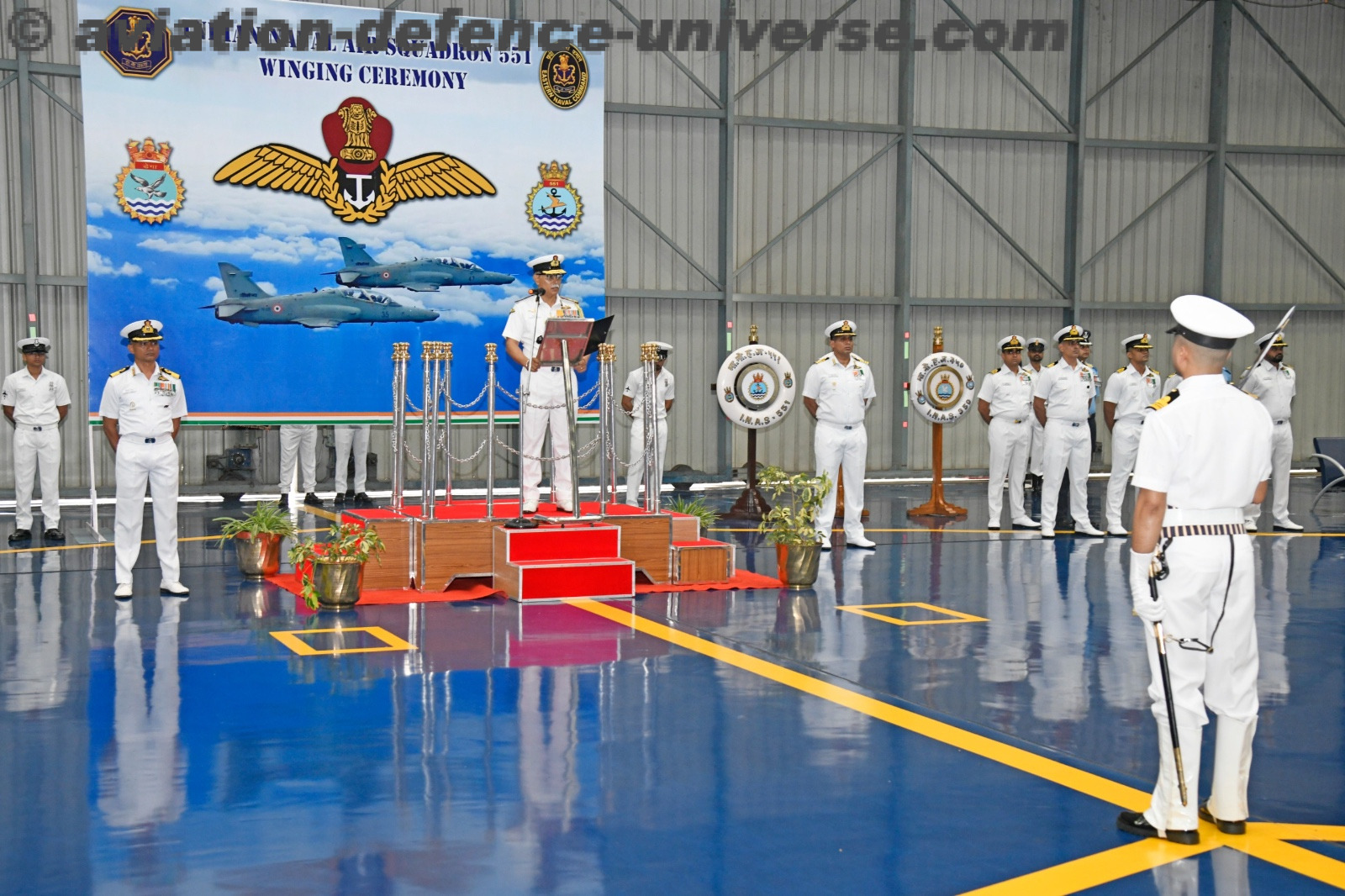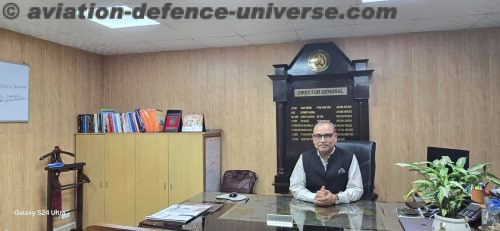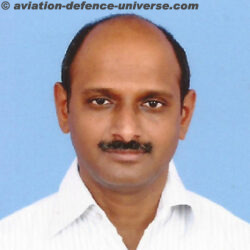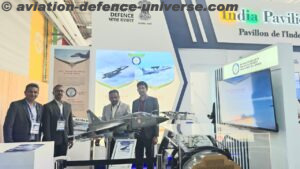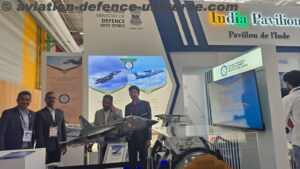- DG CLAWS speaks with ADU
- All set to brainstorm shaping India’s Security and Development
- Transformation of India’s Defence Think Tank stature visible
By Sangeeta Saxena
New Delhi. 23 October 2024. One of the major initiatives under Centre for Land Warfare Studies , CLAWS’ leadership is the Chanakya Defence Dialogue, an annual forum that brings together military experts, strategists, and defence leaders from around the world. This event focuses on critical security issues, with a specific focus on India’s national security challenges. It has been two years and the dialogue has expanded from a national seminar to an international platform, reflecting CLAWS’ growing influence on global defence discourse.
In this exclusive interview, ADU spoke with Director General CLAWS Lt General Dushyant Singh PVSM, AVSM (Retd.) on the eve of the Dialogue and the excitement was palpable. He is the new leadership at CLAWS and this Maratha Light Infantry veteran has put his strength into ensuring that CLAWS maintains it’s prominence, continues organizing seminars, roundtable discussions, and international dialogues, with the aim to be an asset irreplicable to the Indian Army in it’s strive to excel in forming the best team of military strategists. We explore what sparked this transformation, the role of think tanks in defence and how CLAWS is positioning itself as a force multiplier to the Indian Army.
ADU. CLAWS was relatively taken a back seat for several years. What sparked this sudden transformation and increased activity?
Lt Gen Dushyant Singh. CLAWS is a think tank, and its primary role is to conduct research, hold seminars, and share outcomes with relevant organizations. Around 2013, CLAWS was ranked 48th in its category globally, but in the following years, it slid to around 160.I agree there was a period of reduced activity but the zeal was there. However, last year, the previous leadership decided CLAWS needed make it’s presence felt in the canvass of think tanks and needed to do something big. We began hosting more seminars, discussions, and studies, culminating in the first edition of the Chanakya Defence Dialogue, which this year will be moving to another level, from a national to an international event.
 ADU. Since you took over, what steps have you taken to further revitalize CLAWS?
ADU. Since you took over, what steps have you taken to further revitalize CLAWS?
Lt Gen Dushyant Singh. When I took over, I recognized the need for a multifaceted approach. I reached out to Army Headquarter and they supported the idea of revitalizing CLAWS. Over the last nine and a half months, we’ve conducted 12 major seminars, including strategic discussions at Southern Command. We also held 27 roundtable discussions. The response has been so positive that I already have 12 more seminars lined up for 2024, which may even spill over into January.
ADU. You’ve mentioned outreach efforts. How has this increased visibility impacted CLAWS?
Lt Gen Dushyant Singh. The deliberate outreach to civilian think tanks, media, and international organizations has greatly enhanced our visibility. We’ve received collaboration requests from organizations like PricewaterhouseCoopers (PwC) and German think tanks. PwC, for instance, is working with us on developing open-source intelligence management software, which aligns with our focus areas.
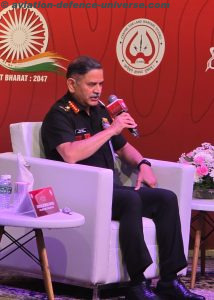
ADU. What were the key outcomes of the first Chanakya Defence Dialogue, and how do you plan to build on that this year?
Lt Gen Dushyant Singh. Last year, the dialogue focused primarily on Indo-Pacific security and collaboration. This year, we’ve broadened the scope to cover comprehensive national development, reflecting the Prime Minister’s vision of “Viksit Bharat” (Developed India). We’ll discuss geopolitics, economic security, and sustainable growth, while addressing internal security and the impact of technology on security management. The final session will focus on land warfare, featuring an international panel of experts from Russia, the U.S., and Israel.
ADU. What are your long-term plans for CLAWS, especially in terms of sustaining this momentum?
Lt Gen Dushyant Singh. My aim is to sustain this level of activity at least during my tenure. We plan to make the Chanakya Defence Dialogue an annual event. Though managing this with a small staff is a challenge, the success of our initiatives thus far indicates that we are on the right track. Additionally, we are involving more stakeholders, including academia, industry, and Defence organizations, to ensure CLAWS remains a key player in Defence and security studies.
ADU. What are the subjects of interest you have planned for the audience at the coming two days?
Lt Gen Dushyant Singh. With modern warfare evolving rapidly due to technological advancements like artificial intelligence, cyber threats, and hybrid warfare strategies , we have ensured everyone gets some thing in the two days of his or her interest. Additionally, we explore the changing dynamics of land warfare, particularly in the context of India’s geopolitical environment and shall brainstorm every aspect of modern day warfare not only battle field scenarios but also preparing for war in peace. CLAWS’ primary mission is to promote strategic thought and discourse within the military and defence community. It aims to contribute to the nation’s defence strategy by conducting rigorous studies on key issues such as counter-terrorism, insurgency, and border security, producing policy recommendations for decision-makers. The platform will bring together military leaders, Army officers, policymakers, and scholars to discuss pressing defence and security issues. Media has also been invited to listen and understand and nothing is Closed Door.

ADU. What do you see as the most significant takeaways from this year’s dialogue?
Lt Gen Dushyant Singh. The key takeaway will be a better understanding of how national security fuels development. The seminar report will include detailed analyses and key recommendations, which will be valuable not only for the Indian Army but also for other stakeholders involved in national security. This foresight will help shape long-term planning and preparedness for future challenges, particularly in the realm of land warfare. CLAWS publishes books, research papers, and policy briefs that offer in-depth analyses of military and geopolitical trends. These publications are widely regarded as authoritative resources in the field of defence studies.
ADU. Is there anything else you’d like to add?
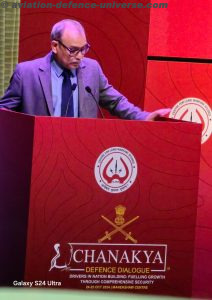
Lt Gen Dushyant Singh. What I want to say is that very few people are there in the business of security – understanding security, practising security and writing about it. I see the same faces all over, whether I go to seminar A, B or C. I think there is a need for fresh people to come forward. Make a name in this field. Expand the challenges, details and the work which you need to do to ensure that you have a nation which is comprehensively secured. And that can only happen when more fresh ideas come, when more younger generation people come forward.
I find there is a general lack of awareness of security matters, security structure and security apparatus of our country. Especially in the younger generation. That is something which I would like to appeal. Whether you are in the corporate world or in the banking sector, everywhere you are being touched by national security issues. And earlier you realise that what goes behind ensuring that your stock exchange runs without fail, you will not be able to fathom the kind of industry which is now flourishing around security. I think this is the biggest message I would like to give.
It was an emotional appeal and a thoughtful closing to an engaging interview. With initiatives like the Chanakya Defence Dialogue, expanded outreach, and collaborations with international organizations, CLAWS is positioning itself to shape the future of defence studies in India and beyond. The dialogue’s focus on national development and security highlights the crucial interplay between the two, offering key insights for the nation’s strategic planners.
As told to Sangeeta Saxena































